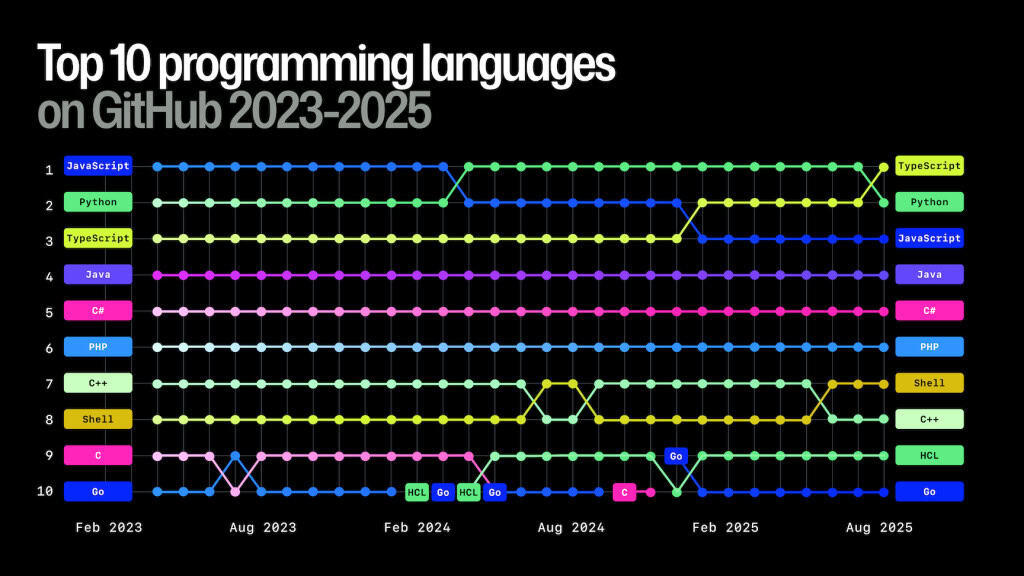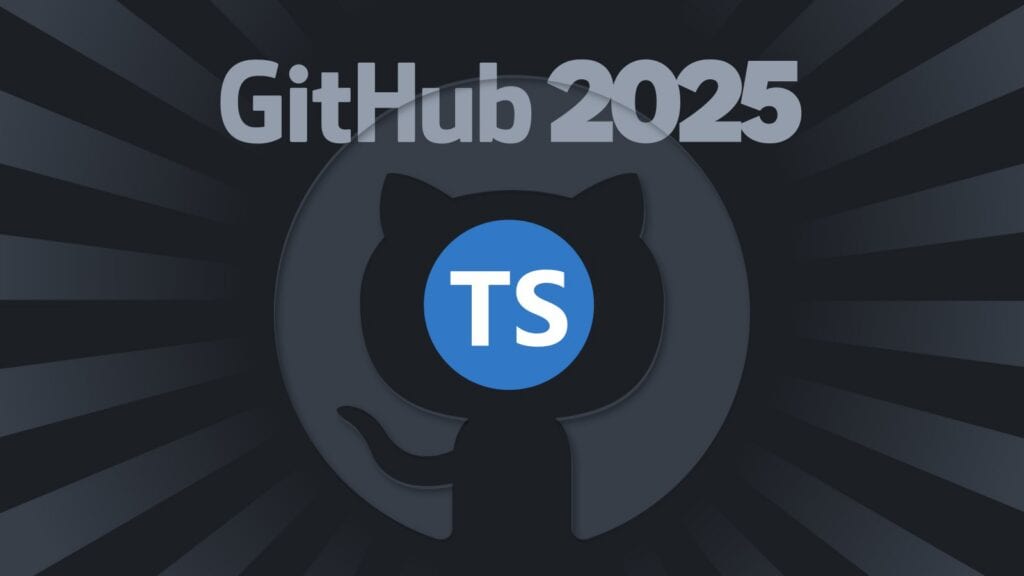For the first time in GitHub’s history, TypeScript has overtaken Python to become the platform’s most-used programming language, according to GitHub’s latest Octoverse 2025 report. However, it’s not all that surprising when you think about it — last year’s report already showed TypeScript gaining traction fast, mainly related to the AI trend. Here are some numbers.
By contributor count, TypeScript grew by over one million new developers this year—a 66% year-over-year surge that pushed it ahead of Python by roughly 42,000 contributors. With 2.63 million active users, TypeScript now sits at the top of GitHub’s charts for the first time, followed by Python and JavaScript.
Python, still the backbone of AI and data science, added 850,000 contributors (+48% YoY), while JavaScript grew by 427,000 (+25% YoY). Together, TypeScript and Python now account for more than 5.2 million GitHub contributors, or about 3% of all active developers on the platform.

But what are the reasons for this (somewhat) surprising change? Well, GitHub attributes much of TypeScript’s growth to the rise of AI-assisted development tools, which benefit from stricter type systems that can catch errors earlier in the coding process.
TypeScript’s static typing allows LLMs to produce more reliable code, reducing the ambiguity often found in loosely typed JavaScript. Additionally, in 2025, a growing number of frameworks — including Next.js 15, SvelteKit 2, Qwik, and Astro 3 — now scaffold projects in TypeScript by default.
And while TypeScript dominates general-purpose development, Python remains unrivaled in AI and machine learning. It continues to lead in AI-tagged repositories with 582,000 projects (+50.7% YoY). Jupyter Notebook usage also grew by nearly 18%.
But even as TypeScript expands, Python’s consistent growth shows that AI development is fueling demand across multiple ecosystems, not replacing them. Developers are increasingly combining Python’s data pipelines with TypeScript’s app and API layers — a trend GitHub identifies as the new AI-driven “hybrid stack.”
Apart from that, enterprise languages Java and C# each added over 100,000 new contributors, continuing their steady growth. Java’s 20% rise and C#’s 22% gain highlight enduring strength across backend, cloud, and game development, even as AI reshapes how teams build and maintain large-scale systems.
Lastly, among smaller languages, Luau (Roblox’s scripting language) saw an explosive 194% growth, followed by Typst (+108%), a modern alternative to LaTeX. Astro and Blade, popular in the web and PHP communities respectively, also saw strong year-over-year increases as developers sought faster, typed, and component-driven workflows.
For more in-depth information, visit GitHub’s Octoverse 2025 report.
Image credits: GitHub
